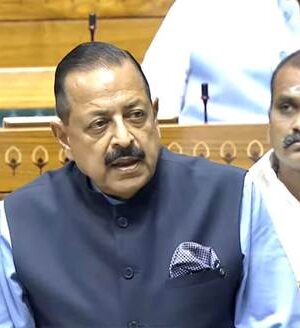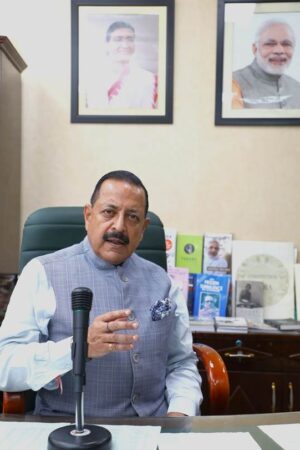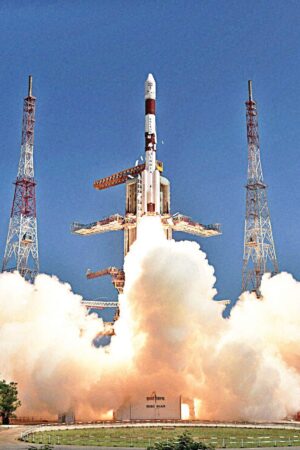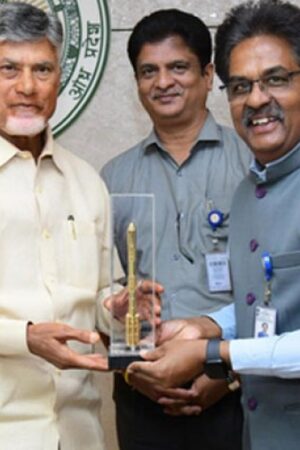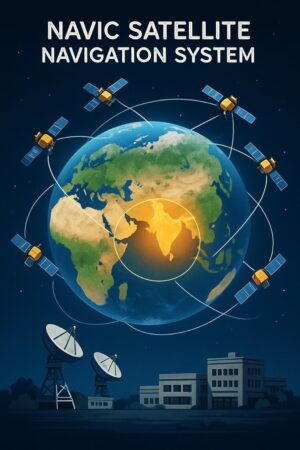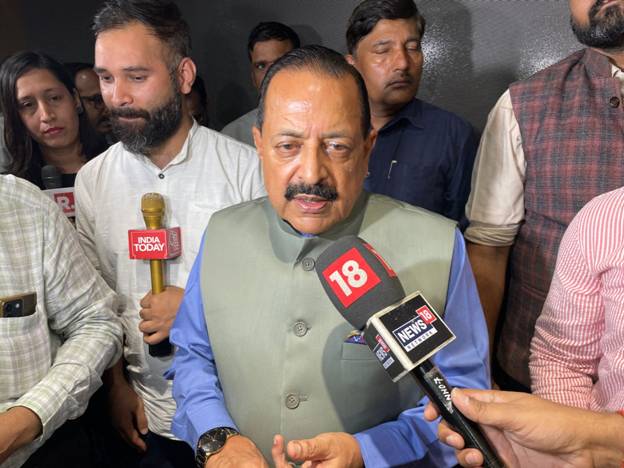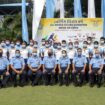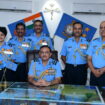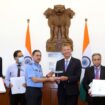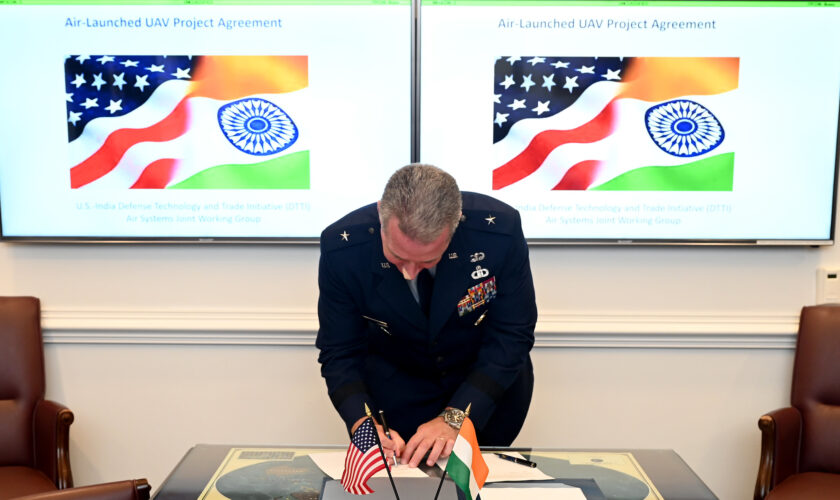Union Minister Dr. Jitendra Singh on Tuesday hailed the safe return of Group Captain Shubhanshu Shukla from the Axiom-4 space mission as a “moment of pride for the world, a moment of glory” for India, stating that the country had secured its rightful place in the global space ecosystem.
“One of Mother India’s illustrious sons is back. India has found a lasting space in the world of space,” he said, while addressing scientists, media personnel, and senior officials after watching the live splashdown.
Group Captain Shukla, India’s astronaut and a key member of the four-person Axiom-4 commercial mission, returned to Earth in the SpaceX Dragon capsule Grace, which splashed down in the Pacific Ocean off the coast of San Diego shortly after 3 PM IST on Tuesday. The spacecraft completed a 22.5-hour descent following an 18-day stay aboard the International Space Station (ISS).
Dr. Jitendra Singh said the mission demonstrated India’s growing stature in global space exploration. “These are experiments that have never been done before. This marks a new era for India’s scientific and technological ambitions,” he noted, adding that the mission’s success would have long-term implications for humankind.
The Axiom-4 crew included veteran U.S. astronaut and mission commander Peggy Whitson, Poland’s Slawosz Uznanski-Wisniewski, Hungary’s Tibor Kapu, and India’s Shukla. The spacecraft undocked from the ISS at 4:45 PM IST on Monday.
Giving details about the next steps, Dr. Jitendra Singh informed that all four astronauts will remain in quarantine until July 23 to complete medical and re-adaptation procedures. “From the 24th, they will begin discussions with ISRO. Debriefings with Axiom and NASA will follow,” he added.
Referring to Prime Minister Narendra Modi’s global vision of Vasudhaiva Kutumbakam (the world is one family), Dr. Singh said the mission reaffirms India’s commitment to global scientific cooperation. He described India’s astronaut as a true Vishwa Bandhu—a global citizen—who carried forward the spirit of universal brotherhood in space. “This is not just a scientific mission, it is a reflection of India’s role as a trusted partner in the shared journey of humanity,” he said.
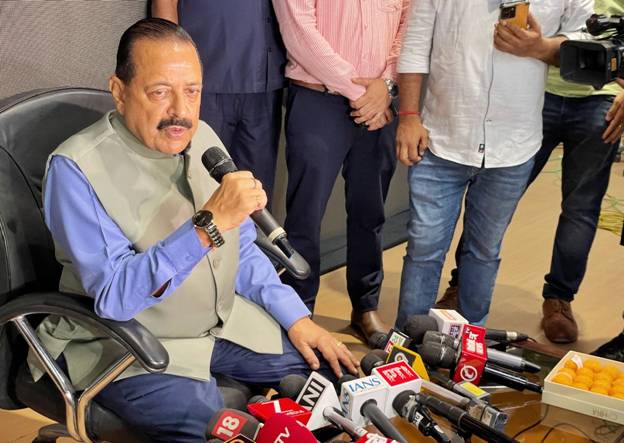
Dr. Jitendra Singh also hinted at Shukla’s return to India around August 17, after completing post-mission protocols and discussions abroad.
Describing the safe return as both a scientific and symbolic achievement, the Minister said, “The call given by Prime Minister Modi to look to the skies and dream big has begun to take shape. This successful mission is just the beginning. It will inspire a new generation of Indians to pursue careers in science and space.”
India’s growing role in global human spaceflight programmes, including the upcoming Gaganyaan mission, is further reinforced by Shukla’s participation in Axiom-4. For India, this return signals more than the end of a space mission—it reflects a confident step into the future of international space collaboration.

